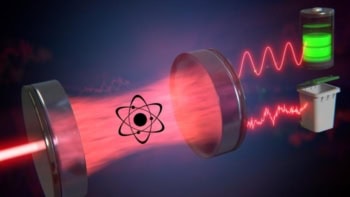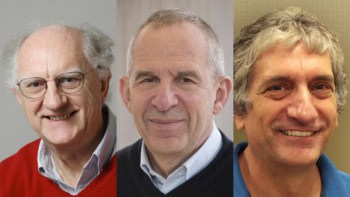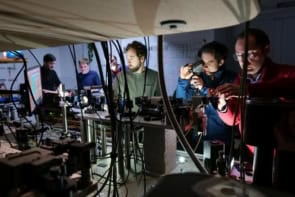Three researchers have won the 1998 Nobel prize for physics for their discovery that electrons acting together in strong magnetic fields can form new types of particles, with charges that are fractions of electron charges. The effect has increased our understanding of quantum physics.
Two of the physicists, Horst L. Störmer from Columbia University, New York, and Daniel C. Tsui, Princeton University, Princeton, New Jersey, discovered the effect – called the fractional quantum Hall effect – in 1982. Robert B. Laughlin at Stanford University, California, explained their results one year later.
The Hall effect was discovered in 1879. This states that when a thin sheet of conducting material is place perpendicular to a magnetic field, an electric current following along the sheet causes a potential difference at right angles to both the current and the magnetic field. When the sheet is observed at low temperatures, the integer quantum Hall effect (discovered in 1980), becomes apparent. The resistence of the sheet now varies in a step-wise fashion as the field is increased. Störmer and Tsui discovered when they studied this effect below 1 Kelvin and with a magnetic field of 20 Telsa, the resistence acts in a similar fashion, but with more and more new steps. This was completely at odds with what condensed matter physicists expected.
According to Laughlin, electrons trapped in a strong magnetic field condense into a exotic new collective state, a quantum fluid, similar to the way in which collective states form in superfluid helium. A quantum of magnetic flux and an electron exist as a quasiparticle that carries the electric current. In Laughlin’s theory, the denominator is always odd, so quasiparticles can carry one-third, one-fifth, one-seventh – of the charge on an electron.
Laughlin said that he heard he had won in a pre-dawn telephone call from Stockholm. “I went completely bananas and then after I got over the shock I brewed a cup of coffee, ” he told NBC television. “I am hoping to use this as a soapbox to tell people how really fantastic nature is and to drive home the idea that there are new things in the world all over the place if you only have eyes to see them.” he said.



